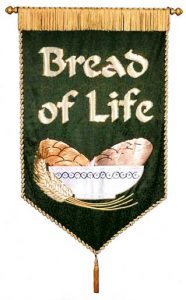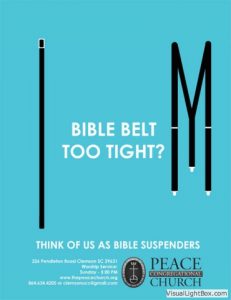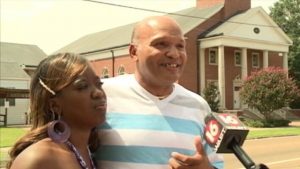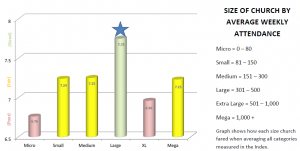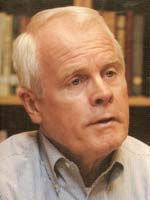God of new beginnings, we approach your table desiring an enduring connection with you. In the blessing of this bread and this cup, bring the way of Jesus into focus. Enlarge our view of the abundant life. Remind us of the call to follow, and strengthen us to travel that path. May our hunger be fully satisfied with the extravagant provision of the Bread of Life in whose name we pray. Amen. Read More …
Call to Worship for Sunday, August 5 (#0811)
Our journey into this moment is intentional; we find ourselves fully here as we set aside activity for stillness certitude for curiosity self-interest for communal possibility We open ourselves to the Divine, seeking nurture and nourishment connection and communion healing and wholeness We welcome the possibility of transformation as together we worship the God of Many Names Read More …
Bible Belt Too Tight? (#0810)
Peace Congregational Church (United Church of Christ) in Clemson, SC is a new church with a creative marketing campaign designed to share the congregation's progressive form of Christianity, including their extravagant and inclusive welcoming mentality, with their community. The effort includes "a series of 10 catchy, thought-provoking posters lifting up the church’s commitment to re-imagine faith, justice and mission." So What? The United Church of Christ's decade old Read More …
Episcopalian Praise for the UCC (#0809)
John Shelby Spong served as bishop of the Episcopal Diocese of Newark for 24 years before his retirement in 2001. In retirement, he has been a prolific writer and speaker. His latest essay, "A Salute to the United Church of Christ," portrays the United Church of Christ (UCC) as a denomination with the potential to "inspire, bring about and participate in the necessary reformation required to break the Christian faith out of its dying patterns." While Spong has had Read More …
A New Chick-Fil-A Conversation (#0808)
Monday, July 16 will be remembered as an important day in the life of the business known for its chicken sandwiches and creative marketing. That was the day when Dan Cathy, President of Chick-Fil-A, was quoted in a Baptist Press article about several topics, including his understanding of the company's "Christian" view of marriage and family: We are very much supportive of the family -- the biblical definition of the family unit. We are a family-owned business, a family-led Read More …
Review of Nonbeliever Nation (#0807)
Meet the Author David Niose is president of the American Humanist Association, an organization committed to "advocating progressive values and equality for humanists, atheists, and freethinkers." Additionally, he serves as vice president of the Secular Coalition for America, a lobbying group representing the interests of secular American's in the nation's capital. Niose is an attorney with significant experience representing Secular Americans, and the author of a Read More …
Troubling “Christian” Happenings (#0806)
Christians who are engaged in works of justice and compassion make a tremendous difference in the world, but usually do not receive considerable attention from the media. Over the last few days several stories have put on display behaviors that can only be viewed as unhelpful, unhealthy, and un-Christian. Three such stories are Fake church kidnapping; Black couple denied church wedding ; and Puppeteer who performed at churches sought to become a cannibal. So Read More …
Church Size & First Time Guests (#0805)
Faith Perceptions recently released the latest edition of their church index, which provides insight into the experiences of first time guests. More specifically, the findings are based on 1,152 separate and unique church services attended by the company's mystery guests (think mystery shoppers for church attendance) between early 2008 and June 1, 2012. The overall results for each church size are shown below (p.6). So What? Large churches (those with average weekly Read More …
Is Incarnational Ministry Wrong? (#0804)
J. Todd Billings, associate professor of Reformed theology at Western Theological Seminary, wrote an article in the July/August 2012 edition of Christianity Today that challenges the popular understanding of incarnational ministry. Billings finds most recent approaches have "serious problems" with wide ranging implications (p.59), and almost all reject the view that Billings proposes as normative: "Jesus alone is God incarnate" (p.63). In contrast to that theological Read More …
Marks of Transformed Christians (#0803)
Gordon MacDonald, chancellor of Denver Seminary, recently shared a list of twelve outward signs that an individual follower of Jesus is maturing or being transformed (Leadership Journal, Summer 2012, p.31-34): Has an undiluted devotion to Jesus Pursues a biblically informed view of the world Is intentional and disciplined in seeking God's direction Worships, and has a spirit of continuous repentance Builds healthy, reciprocal human relationships Knows how to engage the Read More …
